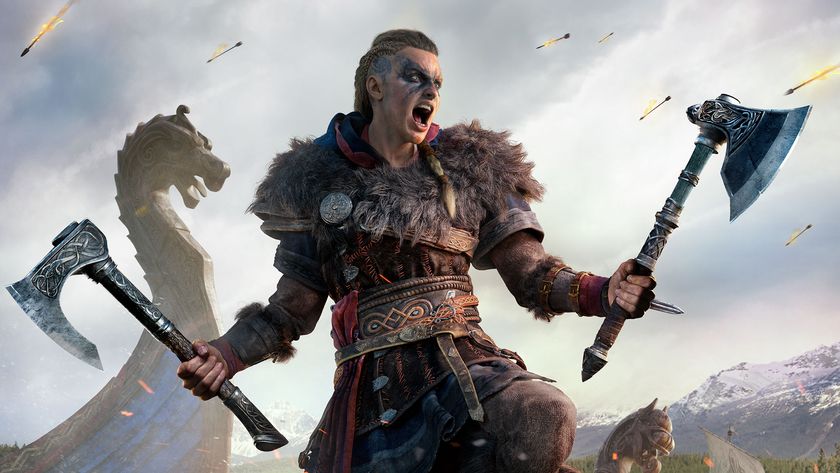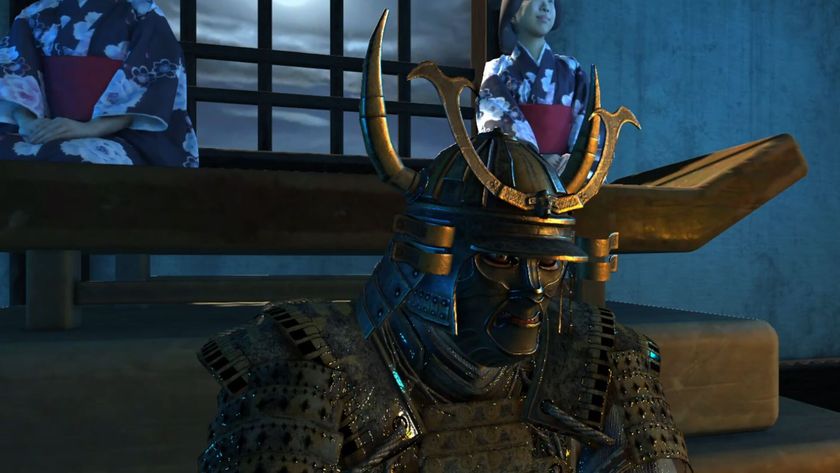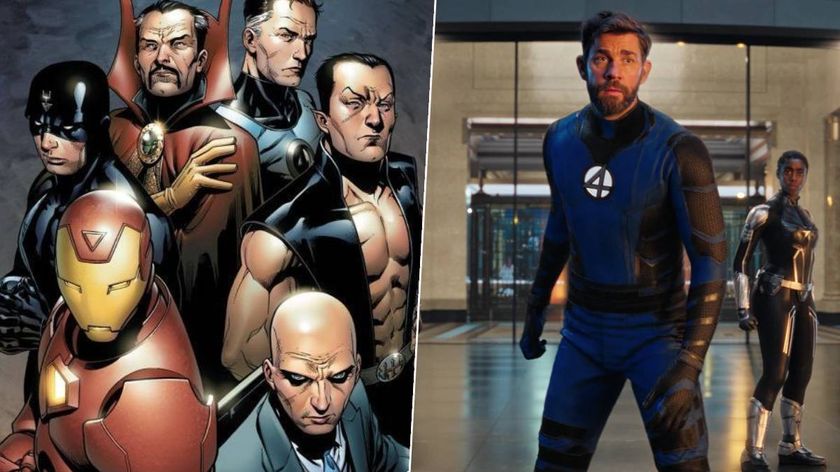Discovery Tour: Viking Age is a fantastic way to immerse yourself in the history of Assassin's Creed Valhalla
Discovery Tour: Viking Age lets you play as Viking and Anglo-Saxon characters to learn about 9th century history
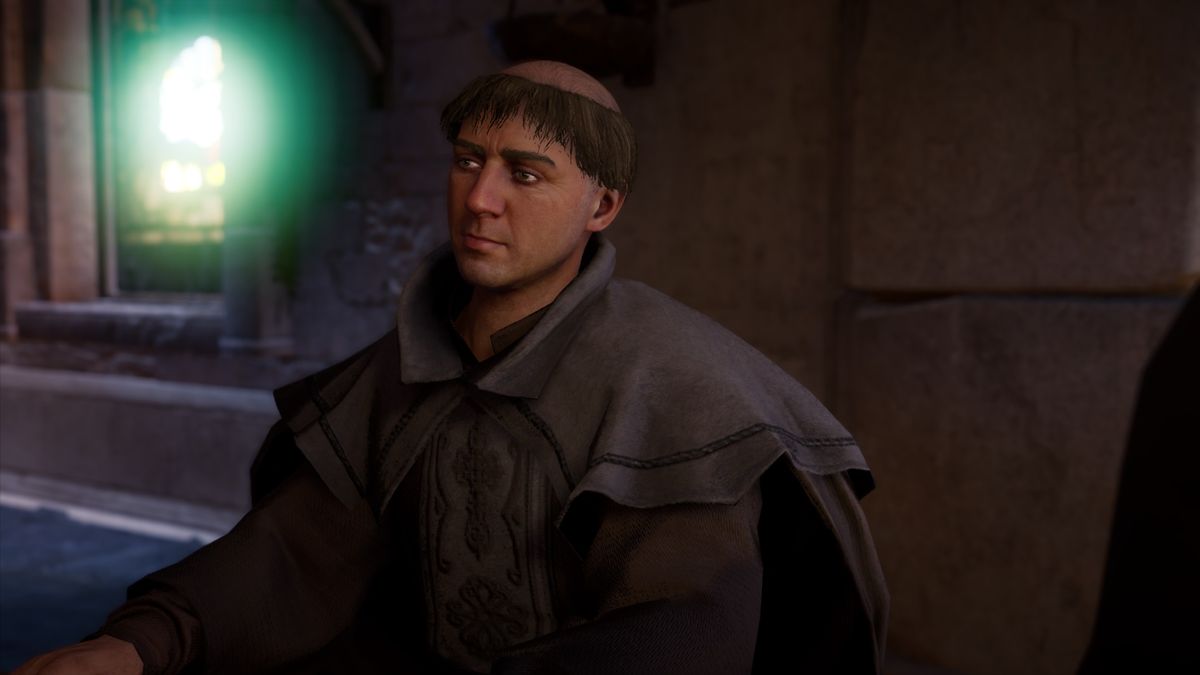
In Assassin's Creed Valhalla, I'm all too familiar with the 9th century monasteries in England thanks to the many raiding adventures I've been on as Eivor. It's easy to get wrapped up in the heat of battle as axes clash, loot is plundered, and buildings are set ablaze. So, when I step into the role of a young monk called Ealric in Discovery Tour: Viking Age, I relish the chance to experience an entirely new perspective of one such raid. As I venture through a story and complete quest objectives, I learn about the history behind the monastic practices I'm carrying out. Before long, Vikings abruptly disrupt my day, and I get to see first-hand just what it's like to be on the other side of a raid as I flee the scene with an old relic.
Ealric is just one of the different roles you can assume in eight historically inspired story arcs that make up the experience of Discovery Tour: Viking Age. With quests that put you at the center of the time period, the third Discovery Tour in the Assassin's Creed series is still a non-violent, educational experience just like previous tours, but this new and more immersive approach aims to bring us even closer to the history of Assassin's Creed Valhalla. As Discovery Tour's world design director Maxime Durand explains, this new direction was initially sparked by conversations and feedback the team had received from the previous tours.
"Because we did those two first discovery tours, we were able to engage in discussions and bring the game into classrooms on a much bigger scale," Durand explains. "[After] having all of these discussions with teachers, with university professors, we realized that we were not using the full potential of video games to its maximum for learning opportunities. And that's really what sparked the idea of changing the formula."
"We really focused on two new paradigms, which is learning by doing and history through stories," Durand adds. "And the idea behind that is that empathy leads to learning because we care about the characters, and also doing the things with the character, with the avatar, actually leads also to greater learning and greater comprehension. So it was really the comments from educators that pushed us into coming back to the video game formula."
Quest for knowledge
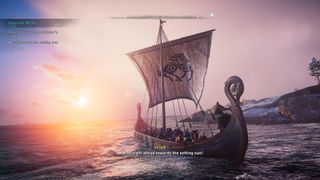
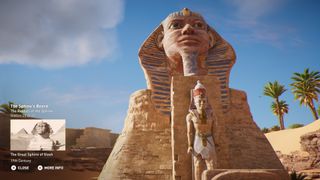
5 ways Assassin’s Creed Origins' Discovery Tour makes learning fun.
By allowing us to learn about the past through story quests with objectives to complete, the Viking Age opens up the history of Valhalla in a way that feels more engaging than the previous two experiences. The history behind Assassin's Creed: Origins and Assassin's Creed: Odyssey was mostly explored through guided tours in ancient Egypt and Greece, with the latter being slightly more interactive. With a shift towards assuming the role of different characters, the team started working on the concept for Viking Age in much the same way as they had for past tours: by looking at what they already had to work with from the core game. As Durand explains, this Discovery Tour presented the opportunity to explore "the history of Norway, the story of England, and the mythological worlds" we see in Assassin's Creed Valhalla.
With this in mind, the basis for the quests in the latest tour began by examining school curriculums in the UK, Scandinavia, and other parts of the world to see what could work well in the classroom. "What really changed this time around is that we worked earlier with the historians as consultants, so that they could participate in the creative process, because we knew we wanted to create a story," says Durand of the initial concept. "Working hand in hand with the consultants, we really were trying to get the best historical information, for sure, but we also wanted to make sure that our characters were compelling, and also believable and realistic. Because three out of the four characters that we have are new characters, they're fictitious, we wanted to make sure that we were getting a sense of authenticity, but at the same time that it was conveying the real messages that we wanted to convey."
Many of the locations featured in the tour will be familiar to you if you've played through Assassin's Creed Valhalla. Stories take place in areas like Winchester and Jorvik, where you're free to explore during and after each quest just like previous tours. Throughout every location, you'll come across Discovery Sites that appear as yellow markers - these sites allow you to learn more about the Viking age and contextualize historical facts that complement the quest you're currently on. Blue markers can also be found that give you a fascinating Behind The Scenes look at the development of Assassin's Creed Valhalla.
Sign up to the 12DOVE Newsletter
Weekly digests, tales from the communities you love, and more
Durand believes these historical markers offer an additional layer of learning that is great for those wanting to gain a deeper understanding of the history, as well as fans who want insight into the making of the core game. "Because our scale is smaller, we can focus on some areas of the map that serve us better in terms of historical message," Durand says of the setting for certain quests. "So, for instance, we have quests that take place in Winchester or in Jorvik. These locations were made quite well by the team in terms of historical realism, but it's still inspired, there's still fantasy out there. We have this opportunity to both be engaging in the narrative aspect of the quest and use the other elements, which are the Discovery Sites and Behind The Scenes, to explain the real history behind [them], and sometimes where we are further away from that [historical accuracy]. So it's both very interesting, I think, for people that are genuinely interested in how video games are made, but it's also very enlightening in terms of media literacy."
Stepping into history
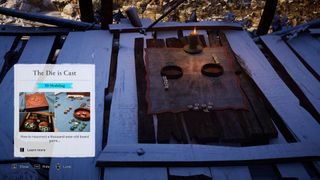
"It's just such an important gateway into understanding the period and making the period come alive for so many people"
Ryan Lavelle
The team strived to be as historically accurate as possible for the Discovery Tour, as evidenced by the many historians and archaeologists who collaborated on the project. Ryan Lavelle, professor of early medieval history at the University of Winchester, is one of the experts the Ubisoft team consulted with on both Assassin's Creed Valhalla and Discovery Tour: Viking Age. In a later quest during the tour, you continue to follow the journey of the young monk who accompanies King Aelfred through Winchester, which is the area Lavelle advised on for the experience.
"I was asked to be able to suggest particular themes associated with life in Winchester, and the Court of King Alfred the Great around 878. And it's really interesting that it's a slightly different date from Assassin's Creed Valhalla, so there's a slight time-shift that goes on there," Lavelle explains. "It was interesting to sort of speak to those elements. They'd [Ubisoft] asked me about themes that might come in, that might feed into some of the plotline, some of the gamification of thinking about how the King's council might work and how decisions might be made at that kind of level."
As well as advising on elements about the "day-to-day life of the kingdom", Lavelle also provided a "second eye" for features like the historical markers. "It was a sort of exercise in marking people's work, essentially; something I'm quite used to as a university lecturer," Lavelle laughs. "Providing feedback and comments and just trying to suggest ways in which things can be rephrased for the historical markers, for example, but [to] get the right level for the audience. Not too academic, but at the same time, not dumbing it down completely and simplifying things too much, at least. And ensuring that things have the right level of accuracy was a big part of it, too."
The quests really do feel like they bring history to life in the world of Assassin's Creed Valhalla, and from my time with characters like Ealric and a young merchant in Norway, I learn a lot about the traditions, beliefs, and practises of the time period. By letting you experience the roles of different characters and their day-in-the-life stories instead of guided tours, Discovery Tour: Viking Age feels more interactive and immersive than the previous experiences that came before it. I can quickly see just how these story arcs will engage players and non-players alike who want to learn more about Valhalla and its history.
It's certainly one very entertaining way of stepping into history, which Lavelle believes has true value in terms of education. "It's just such an important gateway into understanding the period and making the period come alive for so many people," Lavelle says. "Certainly opening it up for educational reasons, I think it's tremendous. I'm looking forward to the possibilities of whole new audiences being introduced to the period that I really love."
Assassin's Creed Valhalla owners can access Discovery Tour: Viking Age for free on October 19, 2021, on PC, PS4, PS5, Xbox One, and Xbox Series X. It can also be purchased as a standalone experience on PC on October 19, and in 2022 on consoles.

I started out writing for the games section of a student-run website as an undergrad, and continued to write about games in my free time during retail and temp jobs for a number of years. Eventually, I earned an MA in magazine journalism at Cardiff University, and soon after got my first official role in the industry as a content editor for Stuff magazine. After writing about all things tech and games-related, I then did a brief stint as a freelancer before I landed my role as a staff writer here at 12DOVE. Now I get to write features, previews, and reviews, and when I'm not doing that, you can usually find me lost in any one of the Dragon Age or Mass Effect games, tucking into another delightful indie, or drinking far too much tea for my own good.
Most Popular




